“Redefines what it means to take music on the road”: With app integration and a space age carbon fiber build, is the $270 TravelMate-E smart guitar Harley Benton’s boldest release yet?
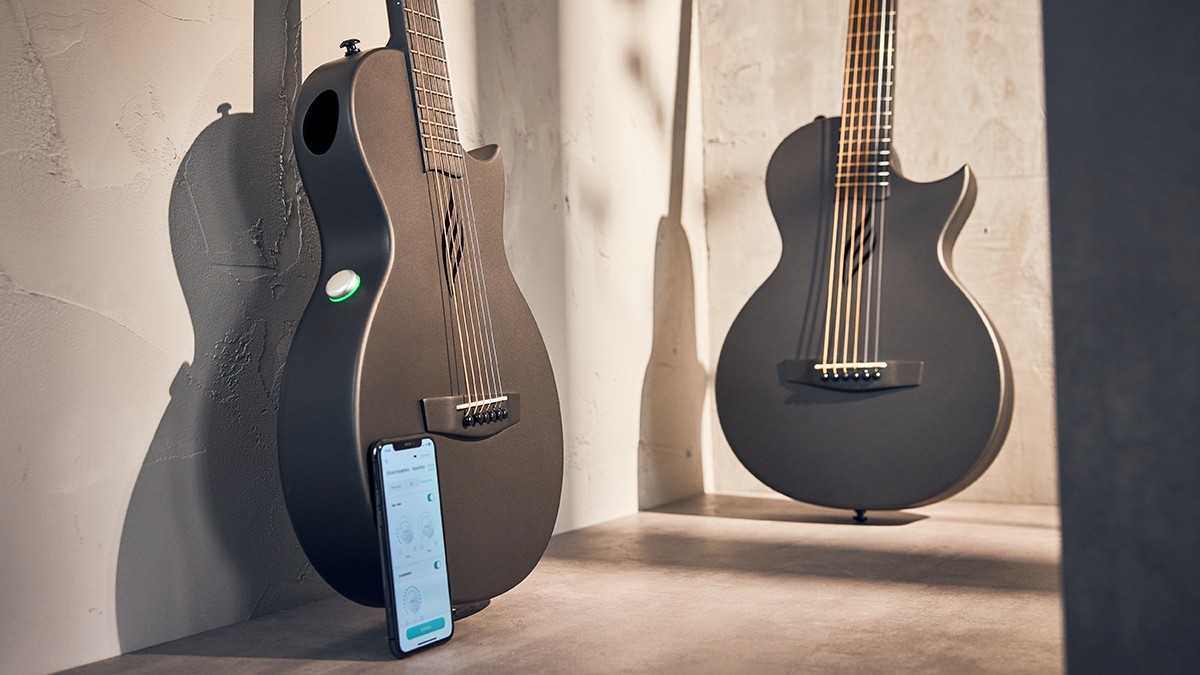
The 2020s played host to the era of the smart guitar, with innovations such as Lava Music’s effects-loaded offerings – and the ever-growing interconnectivity between guitars and gadgets – pushing us towards a gear future characterized by technologically advanced instruments.
As such, it was only a matter of time before Harley Benton, the champion of cheap guitar gear, threw its hat in the ring and started rubbing shoulders with the tech giants of the guitar world – and that time has now arrived.
Enter the TravelMate-E – an all-new space age acoustic electric guitar unlike anything Harley Benton has released before, which serves as the brand’s most radical release yet.
That much is clear from the outset, as an appraisal of the aesthetics will show. The guitar boasts a single-cut carbon fiber build, which accommodates both a side-mounted soundhole and a quirky, flame-esque soundhole below the strings.
At its core, the stealthy space age six-string features a thinline body, an arched back and fingerboard for “comfort and playability”, DLX die-cast tuners, a carbon fiber nut and 20 frets.

Said to “redefine what it means to take music on the road”, the $270 TravelMate-E also looks poised to become one of the cheapest ‘smart’ guitars on the market, with fully fledged app connectivity allowing players to utilize the brand’s new onboard “SP1 Smart Speaker”.
That system offers reverb and modulation effects, and works alongside the app to navigate “a wide range of tones and effects directly from your instrument”, according to Harley Benton.
All the latest guitar news, interviews, lessons, reviews, deals and more, direct to your inbox!
It’s worth noting the app itself is offered by Enya – an existing company that specializes in smart guitars, and already has a range of all-in-one instruments to its name.
In fact, it is the Enya logo that the main soundhole has been fashioned to represent, making the TravelMate-E something of a collaborative creation.
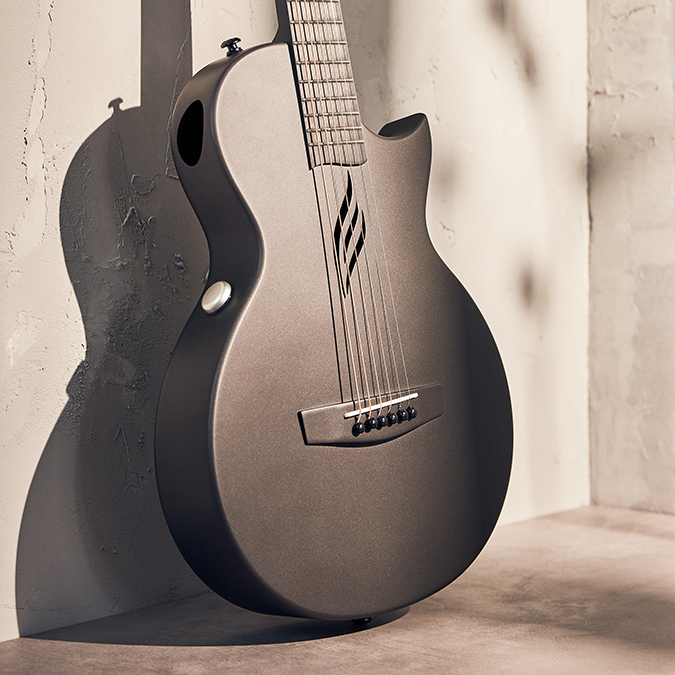
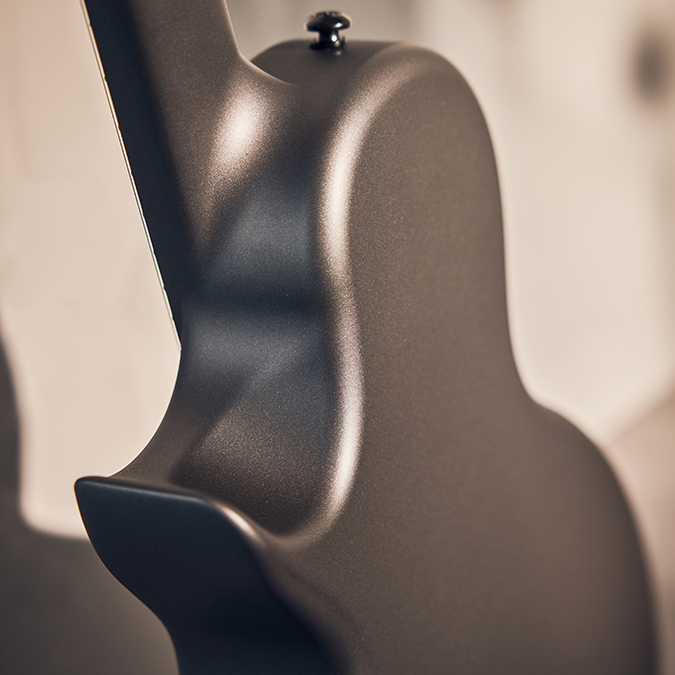

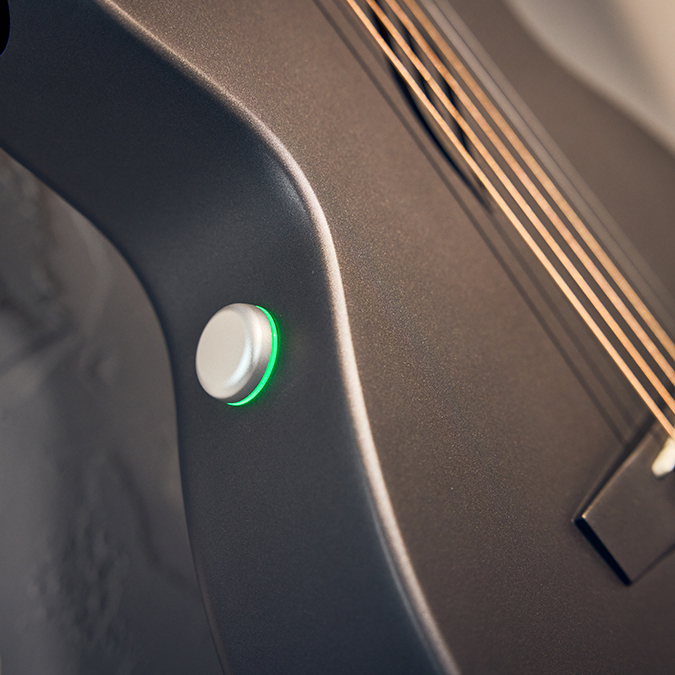
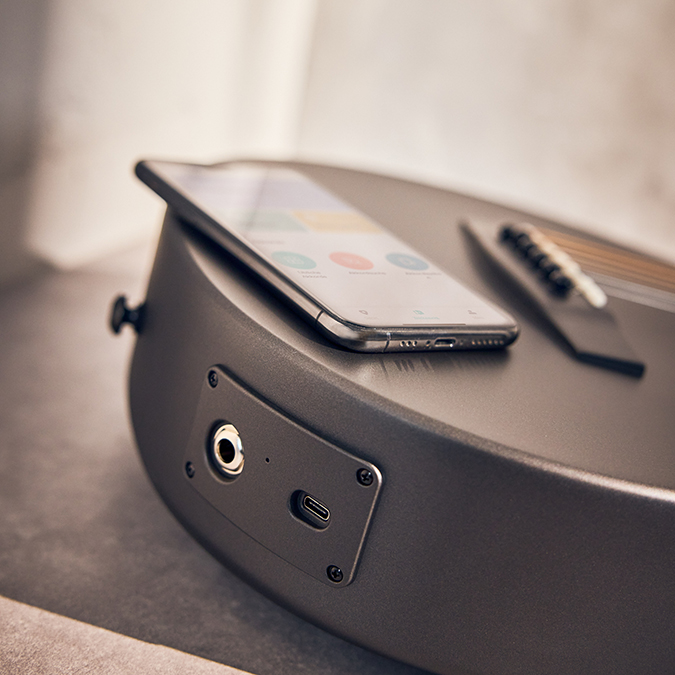
Elsewhere, the TravelMate-E also offers Bluetooth connectivity, and a USB jack for digital output and charging.
With all that said, the TravelMate-E looks to be a strong, affordable entry into the tech game from Harley Benton, which is clearly keen on catching up with the more established smart guitar brands out there.
Granted, pricier alternatives (such as the Lava Music Lava Me 3) are more advanced, and have touchscreens built into the guitar, as well as apps for learning, looping, practicing, recording and more.
At $270 though, the app-only approach seems wholly justified, and the TravelMate-E looks to be a neat gateway guitar for those who may be looking to see what all the fuss is about.
Harley Benton is also keen to sell the aptly named TravelMate-E as a commendable travel guitar. It says the model “may just be the perfect guitar for portability and versatility”, citing its light weight, compact size and durability to support its point.
For those who like the look of the futuristic design but aren’t sold by the digital enhancements, Harley Benton has also released the standard TravelMate. This variant is built the same, though doesn’t incorporate the Smart Pickup System. That model is priced at $195.
Head over to Harley Benton to find out more.

Matt is the GuitarWorld.com News Editor, and has been writing and editing for the site for five years. He has a Masters in the guitar, a degree in history, and has spent the last 19 years playing everything from blues and jazz to indie and pop. During his GW career, he’s interviewed Peter Frampton, Zakk Wylde, Tosin Abasi, Matteo Mancuso and more, and has profiled the CEOs of Guitar Center and Fender.
When he’s not combining his passion for writing and music during his day job, Matt performs with indie rock duo Esme Emerson, and has previously opened for the likes of Ed Sheeran, Keane, Japanese House and Good Neighbours.
